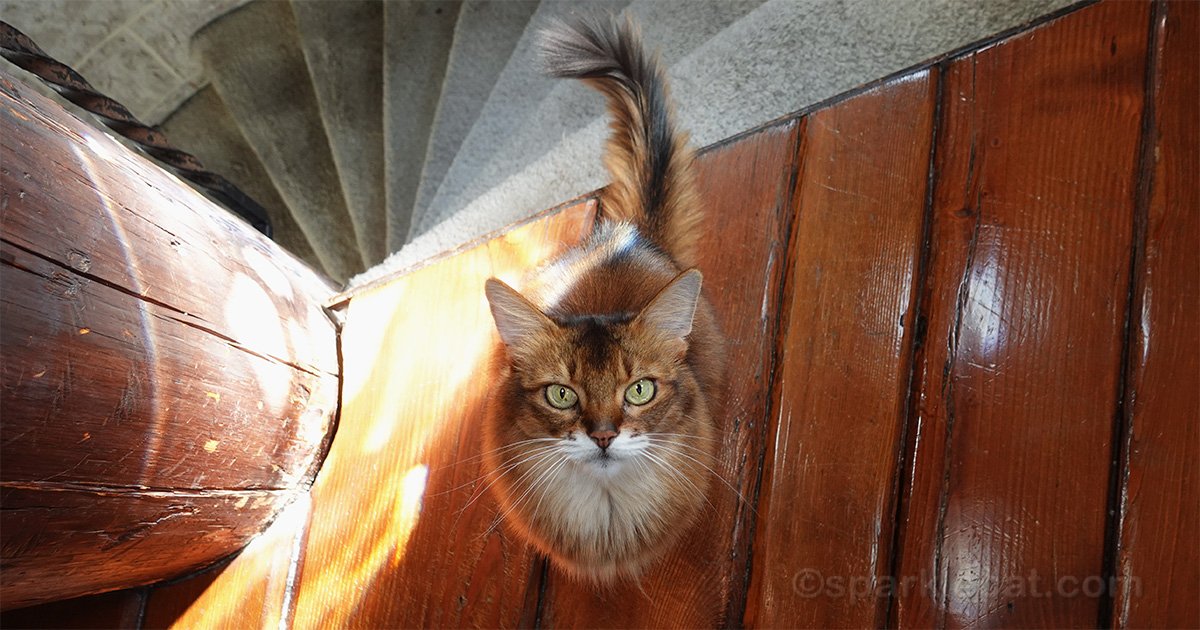Social media channels have been buzzing about an article in New York Magazine’s digital publication, The Cut. Written anonymously by a woman who recently had a baby, it details the cruel and inhumane way she has treated her cat after her child’s birth.
Purpose of the Story, Versus Its Reality
The article was meant to show how people’s relationships with their pets change once they start a family. Instead, her treatment of her cat, Lucky, revealed a shocking lack of compassion for a living being she once claimed to love. Forgetting to feed Lucky and give her water for long periods of time. Letting her litter box get so filthy that she was forced to relieve herself on the floor. Leaving her ungroomed and filthy. Leaving her without medical care for dental problems that developed after a poor diet.
The neglect was bad enough, but the pure anger and hatred she expresses towards her former companion is gut wrenching. And it’s obvious how heartbroken Lucky was whenever she was shoved away during desperate requests for affection. In spite of the writer’s claim that cats, including Lucky, are unaffectionate, it’s clear that Lucky loved her. The cat couldn’t understand what changed. In fact, the writer tells of leaving windows open in her apartment, hoping that Lucky would jump or fall out to her death.
This story was disturbing enough that several social media influencers tried unsuccessfully to identify the writer in an attempt to give Lucky a decent home. The Cut has a disclaimer at the beginning of the article stating that Lucky is okay and safe, but there is a lot of skepticism out there about that.
Who Are We, Once We Become Parents?
The fact is, your relationship with your pet — with everyone, in fact — changes when you have a child. But your emotional core remains the same underneath all the stress, the long hours, and the new reality you’ve gotten yourself into without fully realizing the implications. If anything, it deepens. If you are a good person who has a loving relationship with those around you, you will continue to behave in ways where that love comes through. Even those times when you are short with them, or unreasonably mad at them because you are sleep deprived and your baby is screaming. The moments when you have a millisecond of breathing room, you’ll still know that love is there, and so will they.
Except for a very brief second at the end, the writer showed none of that.
Who This Writer Showed Herself to Be
During the course of the article, you get the impression that the main reason she got Lucky was because she was a lonely single woman in her 20s. She wanted something that loved her unconditionally (note, not the other way around). In the beginning she doted on her. She obsessively lavished attention on Lucky. And Lucky became accustomed to sleeping on her head every night and benefitting from all of her human’s disposable income.
Naturally, after all this attention, Lucky became extremely attached to this woman, even though she claims the cat was anything but a loving companion. So when the boyfriend-to-husband came along, Lucky became territorial. The woman dismissed this issue with, “It was unpleasant but manageable for everyone.” No looking into ways to get Lucky to better accept the new guy. No understanding of how the changing dynamics of the relationship would disrupt the cat’s life. It makes me wonder if she really cared at all, or if Lucky was just a living, breathing toy, to be tossed aside when something newer came along.
So reading that, it’s not surprising that once a baby came along, things would only get worse for Lucky. Yes, pets can suffer from benign neglect after kids come into a family, but this woman’s tone leaned towards malevolence. Postpartum Depression or maybe something even worse? Who knows, but the way she was reacting to her cat was not healthy. Especially for Lucky.
The Story We Really Needed
Yes, stories about the changing status of pets after babies are important. And it should be addressed to help new parents and let them know they are not crazy or bad people if they don’t feel exactly the same way about their pets after birth. But The Cut should never have run this story. It normalizes cruelty and lack of compassion. Someone who sincerely loved their pet and had empathy would never treat an animal the way this writer treated Lucky.
Instead of writing an article about her hatred for a cat she once thought she loved, the writer should have been seeking psychiatric attention. And finding Lucky a new home with someone who understands cats better than she ever did.
Source link


